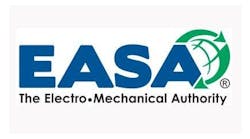Bioelectronics, also referred to as "electroceuticals," is among the newest fields in medicine development. UK-based GlaxoSmithKline, one of the biggest pharmaceutical companies on the planet, wants to be a leader in the bioelectronic medicines space and took the first step towards realizing this ambition in 2012 with the creation of a Bioelectronics R&D unit. The company has now moved to advance its agenda further by launching a $50 million strategic venture capital fund. Called Action Potential Venture Capital Limited (APVC), the fund will make investments in companies blazing a trail in bioelectronic medicines and technologies, GSK said.
The fund carries the name of the electrical impulses traveling along the nerves. A large number of diseases are capable of triggering irregularities or changes in action potential patterns. GSK is among those who believe that bioelectronic medicines can help read these patterns. The miniaturized devices could create a link between the peripheral nervous system and specific body organs to interpret, alter or generate electronic impulses. These impulses can help treat a vast range of diseases, including inflammatory bowel disease, rheumatoid arthritis, respiratory diseases and metabolic disorders. GSK aims to collaborate with scientists around the world and deliver the first medicine tuned to the body's electrical language by 2020. According to GSK's R&D chief, Moncef Slaoui, the company wants to be instrumental in creating the medicines of the future and to serve as a catalyst to such efforts. GSK can act as the integrator required to push this novel type of treatment from the lab to the patient and the APVC fund will play a central part in realizing that ambition, Slaoui added.
RELATED: Chinese pharma probe spreads to two Danish drug makers
GSK has chosen Cambridge, Mass., as the base for APVC. The fund will be entrusted to a small, dedicated team and the first partner has been named: Imran Eba. He is leaving his position as director of worldwide business development to collaborate closely with the Bioelectronics R&D unit. The plan is for the fund to invest in five to seven companies by 2018, focusing on three areas. The first involves investment in newly created companies targeting the development of bioelectronic medicines. The second covers existing companies in possession of technologies establishing interaction with the peripheral nervous system via first-generation devices capable of stimulating or blocking electrical impulses. The third area encompasses enterprises focused on advancing technologies that will aid the implementation of these treatments.
In the months ahead, the Bioelectronics R&D unit will adopt a three-pronged approach to supporting bioelectronics development. Aside from working with APVC, the unit will offer as many as 20 new grants for exploratory research and will establish a network of investigators. Work is already under way to discover the relationship between the nerves and various diseases, the specific patterns of electrical signals passing along these nerves and new technologies enabling interaction with individual nerve fibers. The Bioelectronics R&D unit also aims to create a broader research community, which has led it to engage with other funding and research parties attracted to this new field. In addition, the unit will shortly announce its first global summit, where it will launch a $1 million innovation prize.



